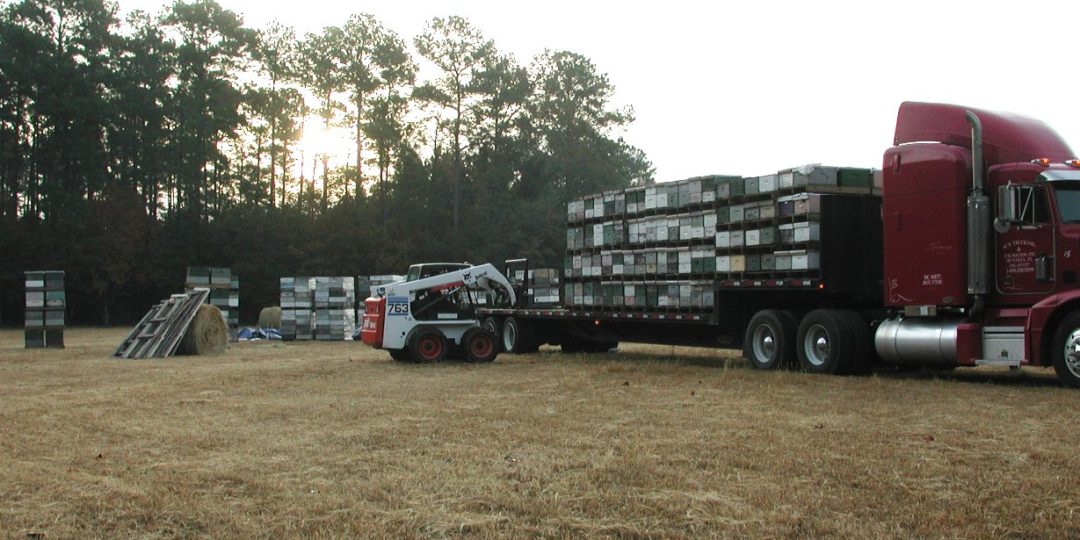Migratory Management of (Stressed Out) Honey Bees
by Shayla Willette

A recent article published in Nature discussed the effects of migratory management and environmental conditions on the lifespan and oxidative stress of honey bees (Apis mellifera). Migratory management is the transportation of honey bees across the country for pollination purposes in large-scale agriculture. Frequent moves such as these may cause high levels of stress. Researchers believe that chronic exposure to stress will cause oxidative stress and ultimately decrease the lifespan of the honey bee. The study aimed to assess the effects of migration on honey bee health, as compared to stationary honey bees who do not have to undergo seasonal moves.
Honey bees are vital for our agriculture and economy. They pollinate a variety of popular crops, including apples, blueberries, oranges, and almonds just to name a few. Without the help of these pollinators and others, these crops would not be readily available to us or even nonexistent. This means pollinator declines could have a catastrophic effect on our economy and food supply, as honey bees can pollinate around $19.2 billion worth of crops per year in the U.S. The results of this study can help us understand the long term effects of migration on honey bees, and determine the best course of action for the health of honey bees and productivity of large monocultures.
“Migratory management impacts bee health and oxidative stress”
The study consisted of three experiments which explored the effects of commercial migration on the lifespan and oxidative stress of honey bees. When bees experience chronic stress, they undergo oxidative stress, which can lead to DNA mutation, damage of proteins, and membrane instability. These side effects are also linked to apoptosis and cellular damage. Ultimately, the bees age faster than normal. All three experiments determined that migratory management increased oxidative stress and shortened migratory bee lives by an average of one day, as compared to stationary bees. Although one day may not seem significant, one day is actually equivalent to 5% of a bee’s entire lifespan, and up to 20% of a bees foraging lifespan.
The beekeeping community strives to find the most bee-friendly and effective beekeeping practices, which is why studies such as this are vital to determine the strengths and challenges of our methods. Our partner, The Best Bees Company, manages hives which remain stationary for the entirety of the colony’s life. This way, the bees can become accustomed to their environments and familiar with their foraging options. It is our belief that this approach strengthens the honey bee population, and favorably impacts pollination.[/vc_column_text][vc_column_text]If you’re interested in learning more about migratory management and the above experiments, the full research paper is available for free online from Nature.
Shayla Willette is a full-time beekeeper with The Best Bees Company, and also contributes to our research efforts here at the UBL. She is a recent graduate of Simmons College, where she earned a degree in Environmental Science.